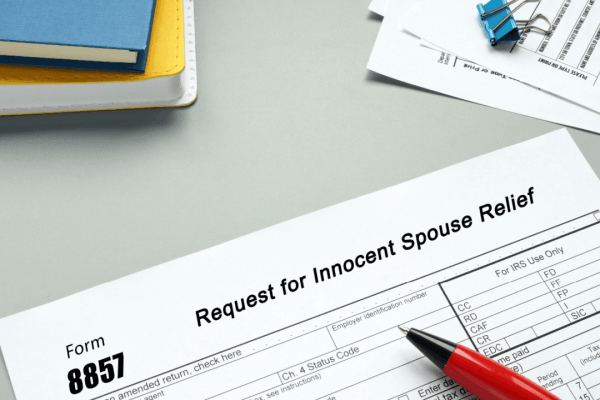
Is Tax Debt Inheritable? How the IRS Handles Estate Debt
Understanding When and How Tax Debt Is Inheritable
Is tax debt inheritable? This question often comes up when someone is managing the estate of a deceased loved one. While tax debt doesn’t usually pass directly to heirs, there are situations where the estate, or in rare cases, family members, can become responsible. Let’s break down what happens to IRS debt after death and what you need to know to protect yourself.
What Happens to IRS Debt After Death?
When someone passes away, their debts—including tax debt—don’t disappear. The IRS has the legal right to collect what’s owed from the deceased person’s estate.
The Role of the Estate in Settling Debts
The deceased’s estate becomes responsible for paying any outstanding tax obligations. Before heirs can receive any inheritance, the estate must first settle all debts, including unpaid income taxes or penalties.
Priority of Claims in Probate
During probate, debts are paid in a specific order. IRS debt often takes high priority and must be addressed before distributing assets to beneficiaries. Executors who ignore this step may face legal consequences.
How Federal Tax Debt Is Treated Differently
Unlike private debt, federal tax obligations are not easily discharged. The IRS can place liens against the estate, and in some cases, seek repayment from transferred property if proper procedures weren’t followed.
When Heirs Might Be Responsible for Tax Debt
While most heirs aren’t personally liable, there are important exceptions to understand.
Joint Filers and Surviving Spouses
If the deceased filed taxes jointly with a spouse, the surviving spouse is typically still responsible for the remaining balance. This is especially true if the debt was incurred during the marriage. Visit our tax debt relief page for spousal IRS liability options.
Co-Signers or Authorized Representatives
If someone co-signed a tax agreement or acted as an authorized representative, they may bear some responsibility. This is rare but possible in specific financial arrangements.
Distribution of Assets Before Paying Debts
If an executor distributes estate assets before settling the IRS debt, they may be held personally liable for the unpaid taxes. It’s critical to resolve all debts before making payouts to heirs. Executors can consult our legal help center for assistance.
What Heirs Should Do If the Deceased Owed the IRS
If you’re handling the estate of someone who may have owed taxes, take the following steps to protect yourself and the estate.
Notify the IRS and Request a Transcript
The estate’s executor or personal representative should contact the IRS and request a tax transcript. This provides a record of any unpaid balances or penalties.
File Final Returns and Pay What’s Due
A final return must be filed on behalf of the deceased. Any taxes owed should be paid from the estate’s funds. If taxes were unpaid in previous years, those must be addressed as well.
Don’t Distribute Assets Until Debts Are Resolved
Heirs should not receive any property or funds until the IRS debt is handled. Distributing assets too early could put the executor or trustee at legal risk. If you’re uncertain, it’s best to get a free tax case review before taking any action.
Legal Protections and Limitations
Understanding your rights can prevent unnecessary stress and avoidable liability.
Can the IRS Go After Heirs Directly?
In most cases, the IRS cannot pursue heirs for the deceased’s tax debt. However, if estate laws were violated, or improper distributions were made, heirs or executors may be investigated.
What If the Estate Can’t Pay the Debt?
If the estate lacks enough assets, it may be declared insolvent. In that case, unpaid IRS debt generally goes uncollected—unless fraud or wrongdoing occurred.
State Laws and Inheritance Rules
Some states have different inheritance rules that could affect how tax debt is handled. Consulting a probate attorney is wise if the estate is complex or has multiple creditors.
Know Your Rights When Dealing With Inherited Tax Debt
So, is tax debt inheritable? While heirs are not automatically responsible, IRS debt can affect estate settlements, delay distributions, and lead to personal liability in certain situations. Handling everything properly from the start can help avoid issues with the IRS and support a smoother probate process.
Need Help Understanding If Tax Debt Is Inheritable?
If you’re unsure whether tax debt is inheritable or if you’re dealing with IRS collections on behalf of a loved one, professional help is available. Contact us at TaxDebtLawyer to connect with experienced tax attorneys who can guide you through probate, estate debt, and IRS negotiations. Don’t leave your inheritance—or your peace of mind—to chance.
Frequently Asked Questions
1. Can the IRS collect unpaid taxes from children or grandchildren?
No. The IRS cannot directly collect from children or grandchildren unless they received estate assets improperly.
2. Are spouses liable for IRS debt after death?
If the taxes were filed jointly, surviving spouses are typically responsible for the full amount.
3. What if there’s no money in the estate to pay IRS debt?
The IRS may close the file if the estate is insolvent. However, executors must follow proper procedures to avoid personal liability.
4. Can a life insurance policy be taken by the IRS for unpaid taxes?
Not directly. If the policy names a beneficiary, it usually bypasses probate. However, improperly managed funds may still be at risk.
5. How long does the IRS have to collect from an estate?
The IRS typically has ten years from the date the tax was assessed to collect, though estate-specific timelines can vary.
Key Takeaways
- Tax debt is not automatically passed to heirs but must be settled by the estate.
- Surviving spouses may be liable for jointly filed tax returns.
- Executors can be held liable if they distribute assets before paying IRS debt.
- Insolvent estates may avoid full repayment, but legal steps must be followed.
- Seeking legal help ensures compliance and protects everyone involved.
Free Tax Case Review
If you are struggling with tax debt or have received a letter from the IRS complete the form below.Advertising. This site is a marketing service and does not provide legal or tax advice. Submitting information does not create an attorney-client, tax professional-client, or any other advisory relationship. Results are not guaranteed. A list of participating attorneys, tax firms, and tax providers is available here.
IRS Audit
You received an audit notice from the IRS
Tax Debt Relief
You owe the IRS money and are looking for relief options
Wage Garnishment
The IRS is taking part of your wages to pay off your debt
Tax Lien
The IRS put a legal claim on your property
IRS Property Seizure
The IRS is going to take your property to pay down or pay off your tax debt
Penalty Abatement
You want to request to remove or reduce penalties assessed by IRS
Innocent Spouse Relief
Relief from joint tax debt caused by your spouse or former spouse
Tax Debt FAQ
Common facts, questions and answers about tax debt and tax debt reilef
Tax Debt Lawyer
A tax debt lawyer can help you with your tax debt problems
Recent Posts
- Who Is Eligible for Innocent Spouse Relief and How Does It Work?
- What is an Effective Tax Strategy for Married Couples
- What are the Proofs of Innocent Spouse Relief?
- What Form Do You Use for an Innocent Spouse? | Complete IRS Filing Guide
- What Are the Four Types of Innocent Spouse Relief? | Your Complete Guide



